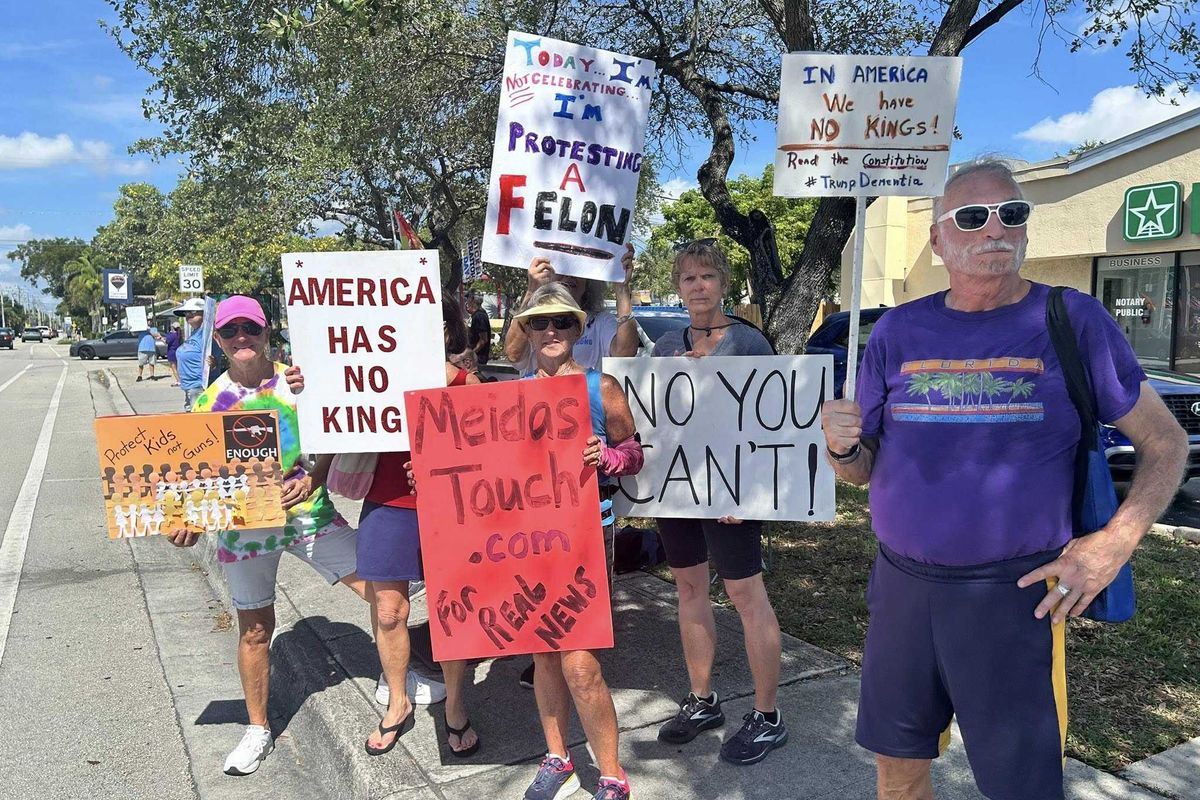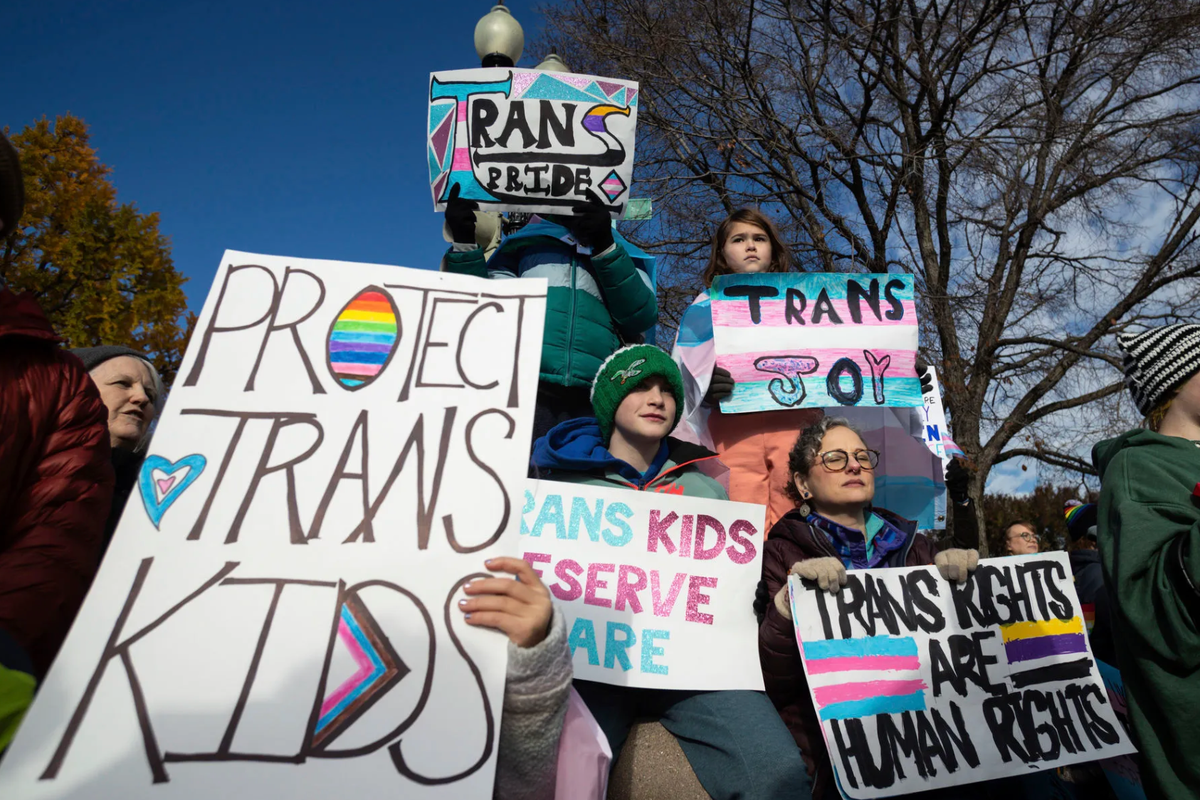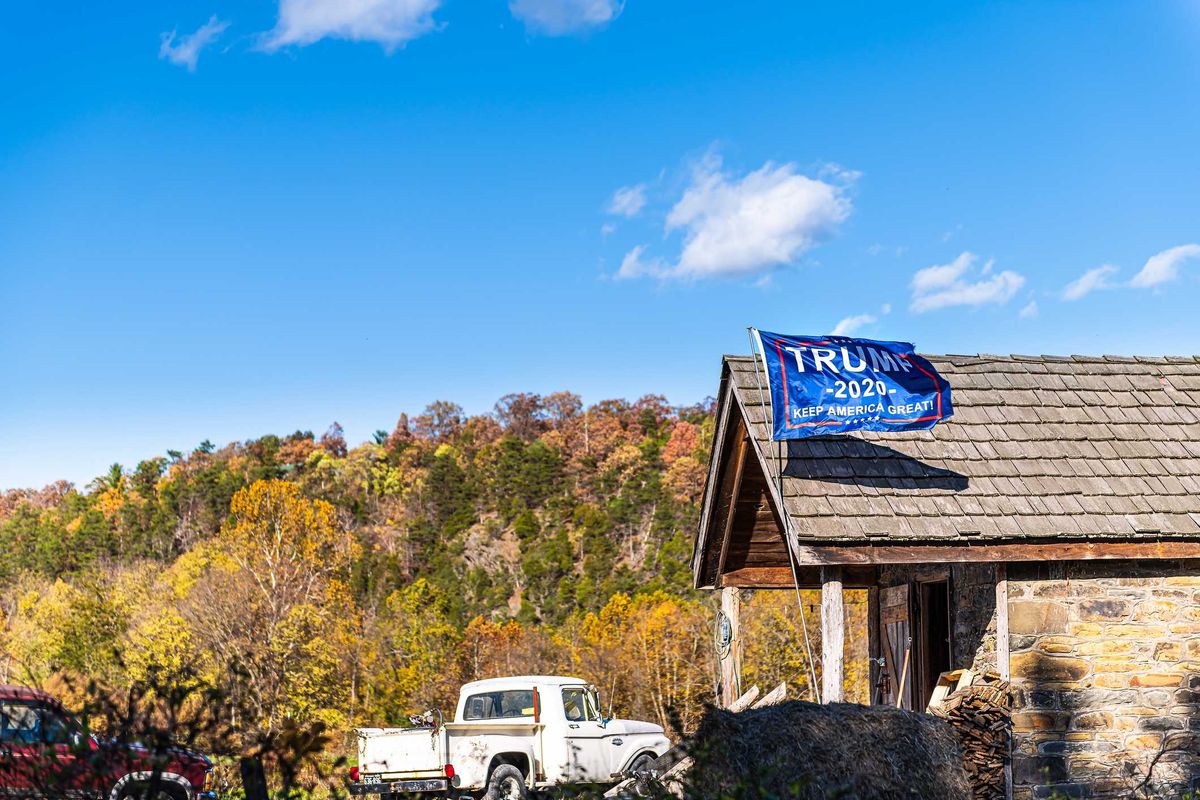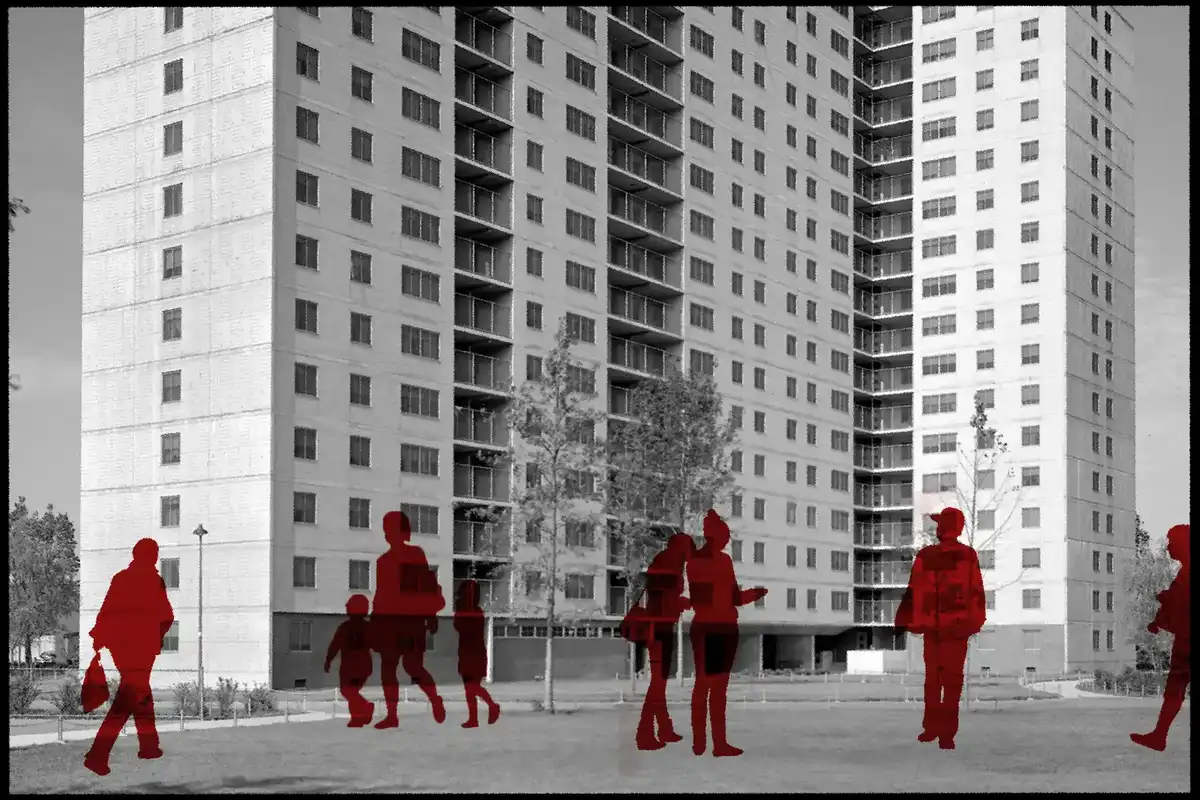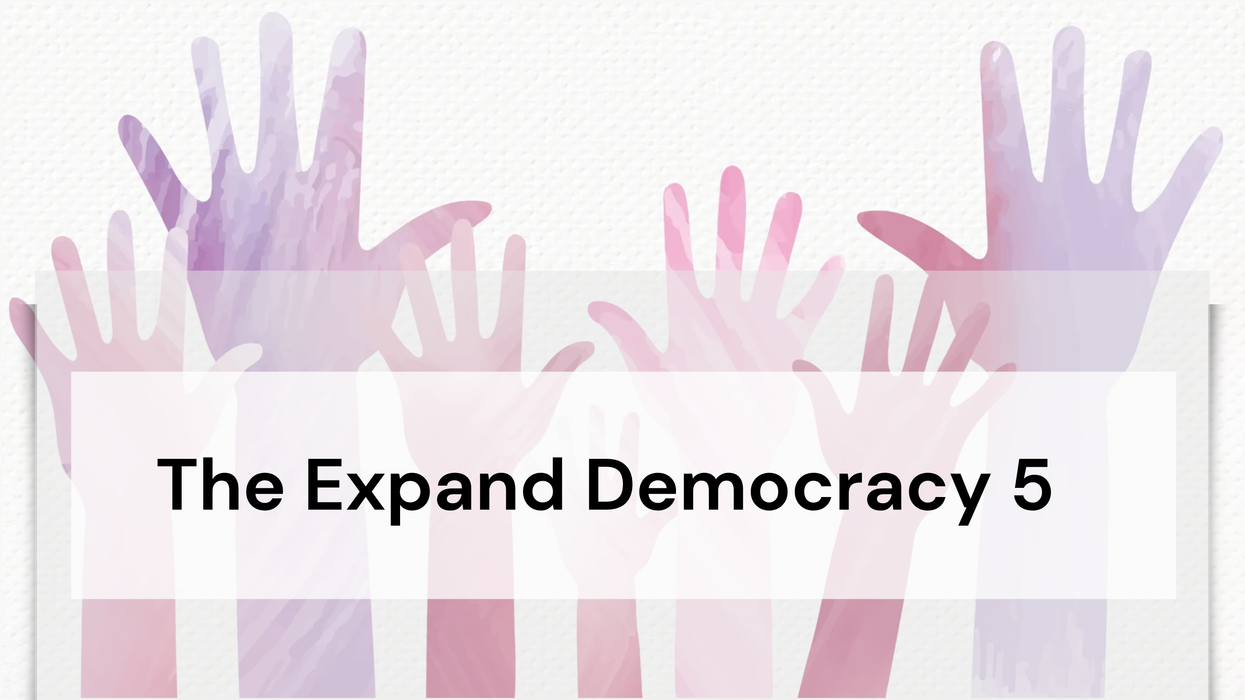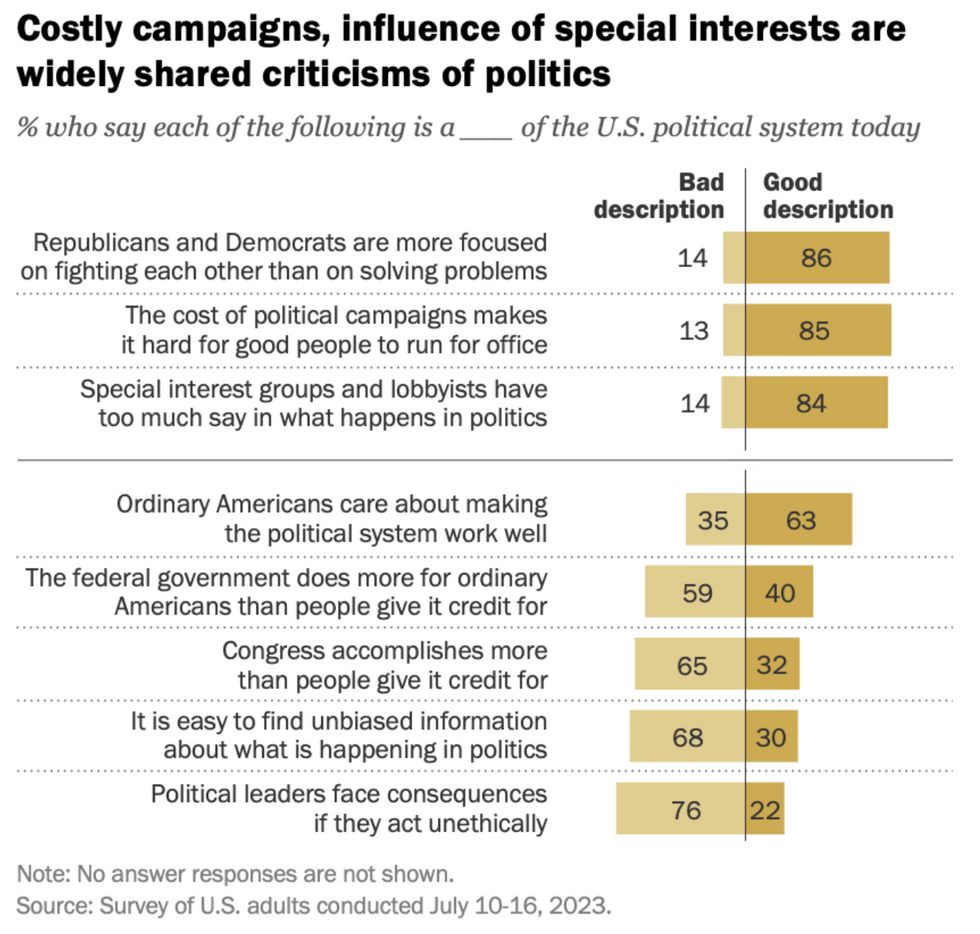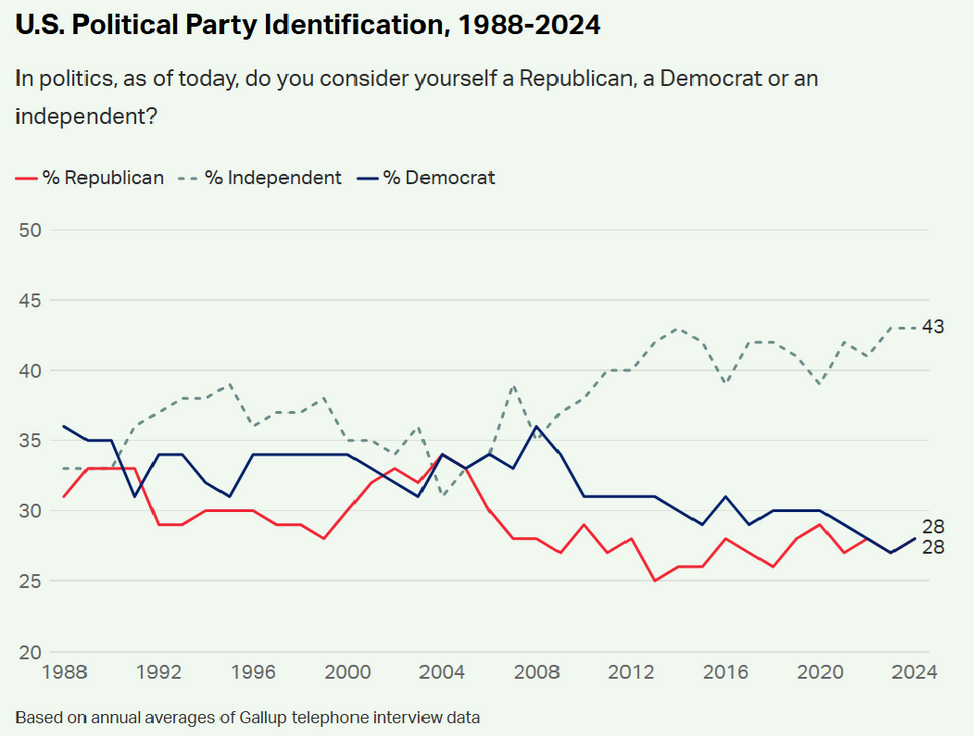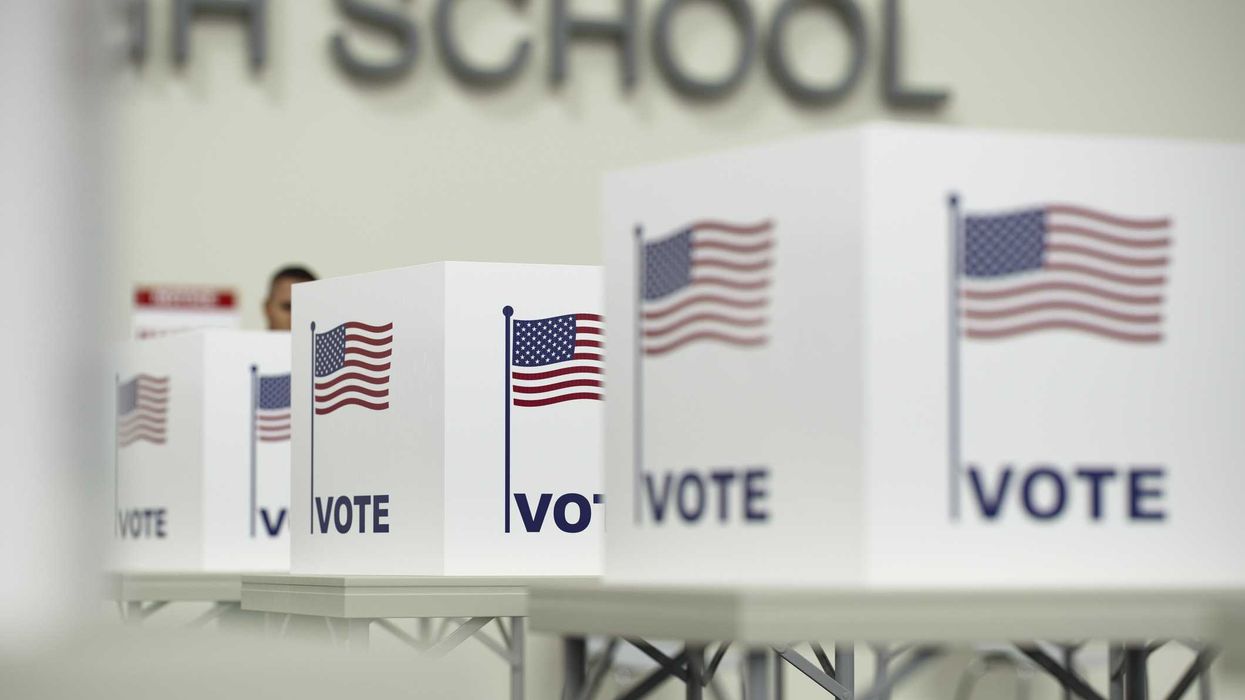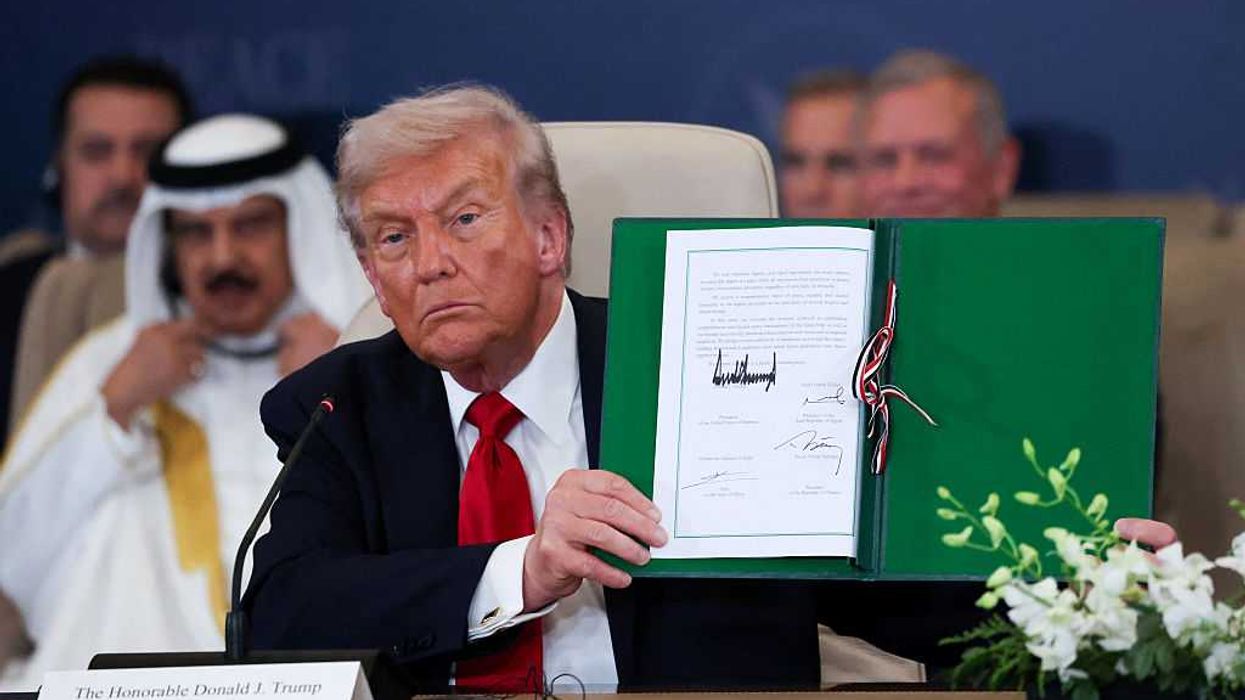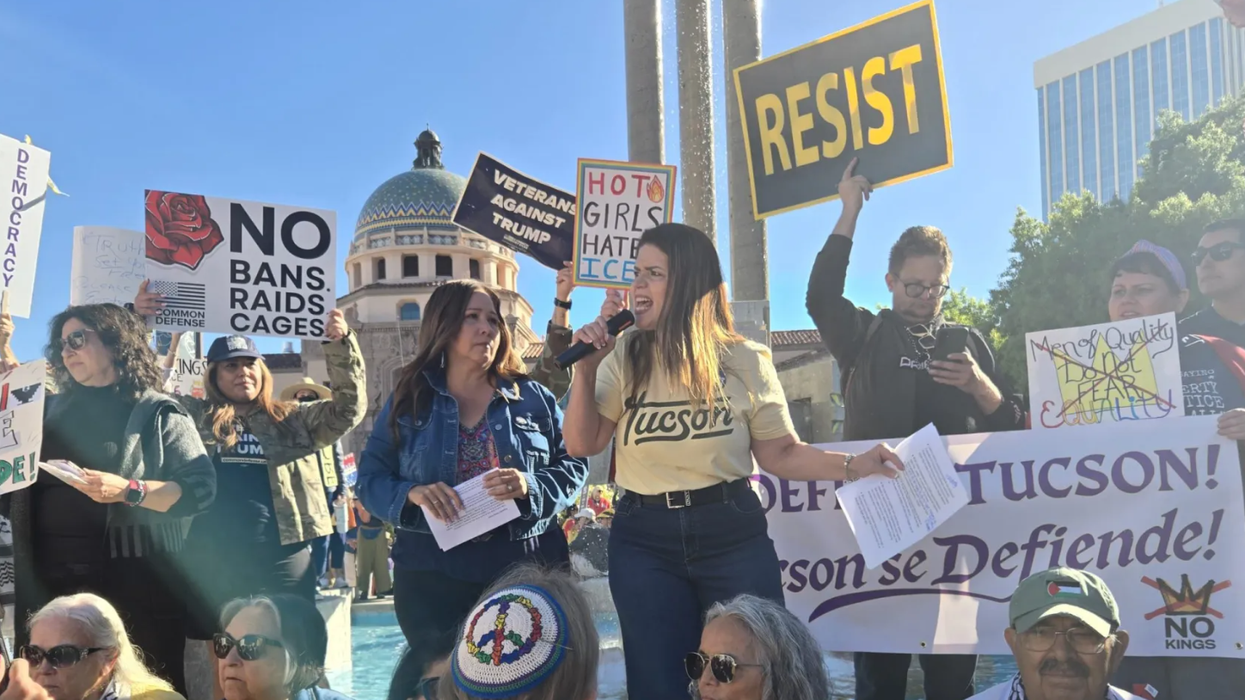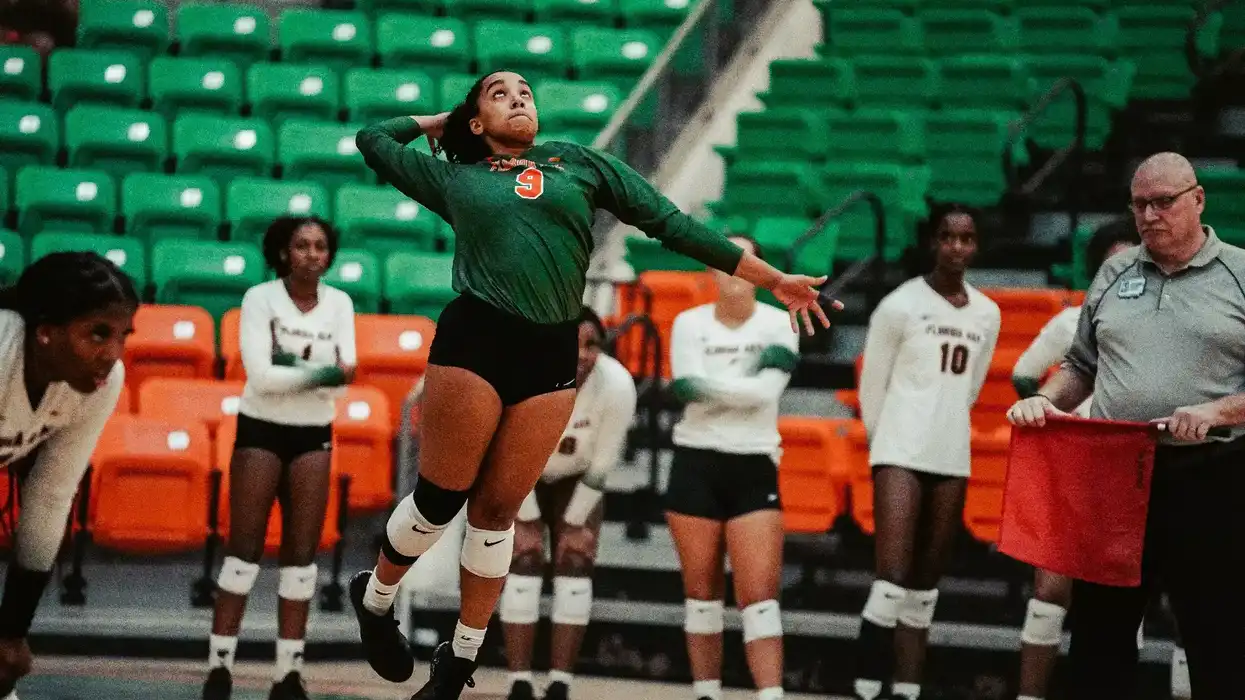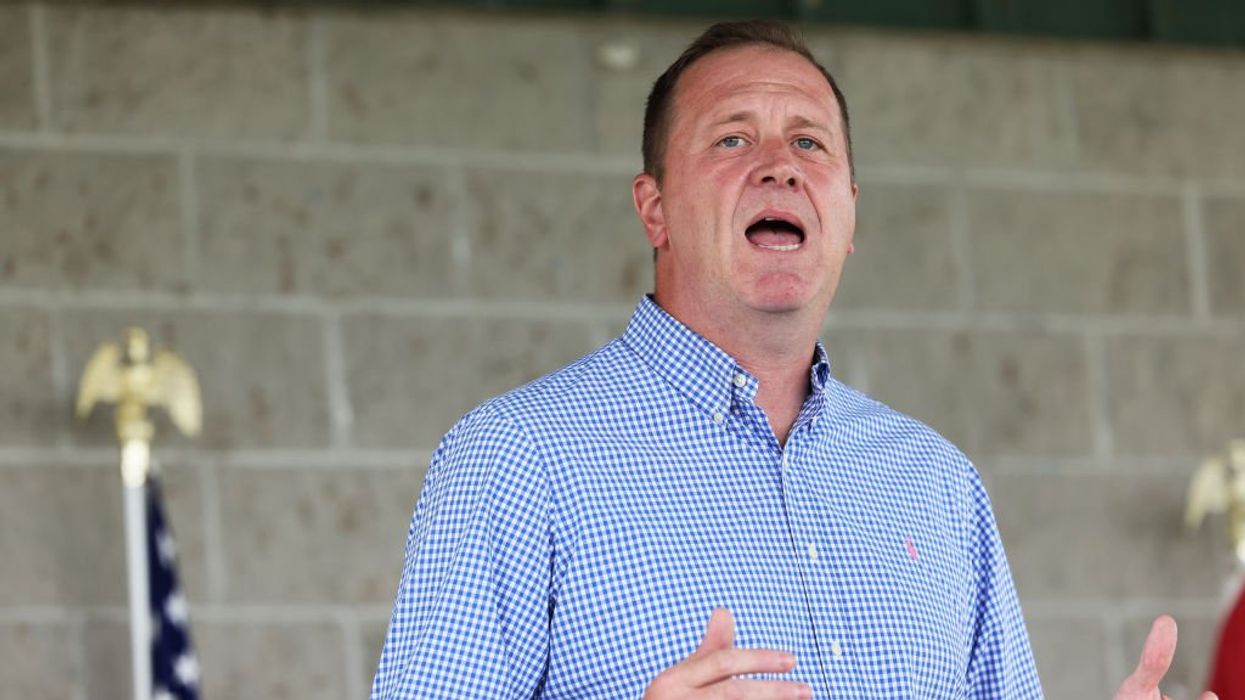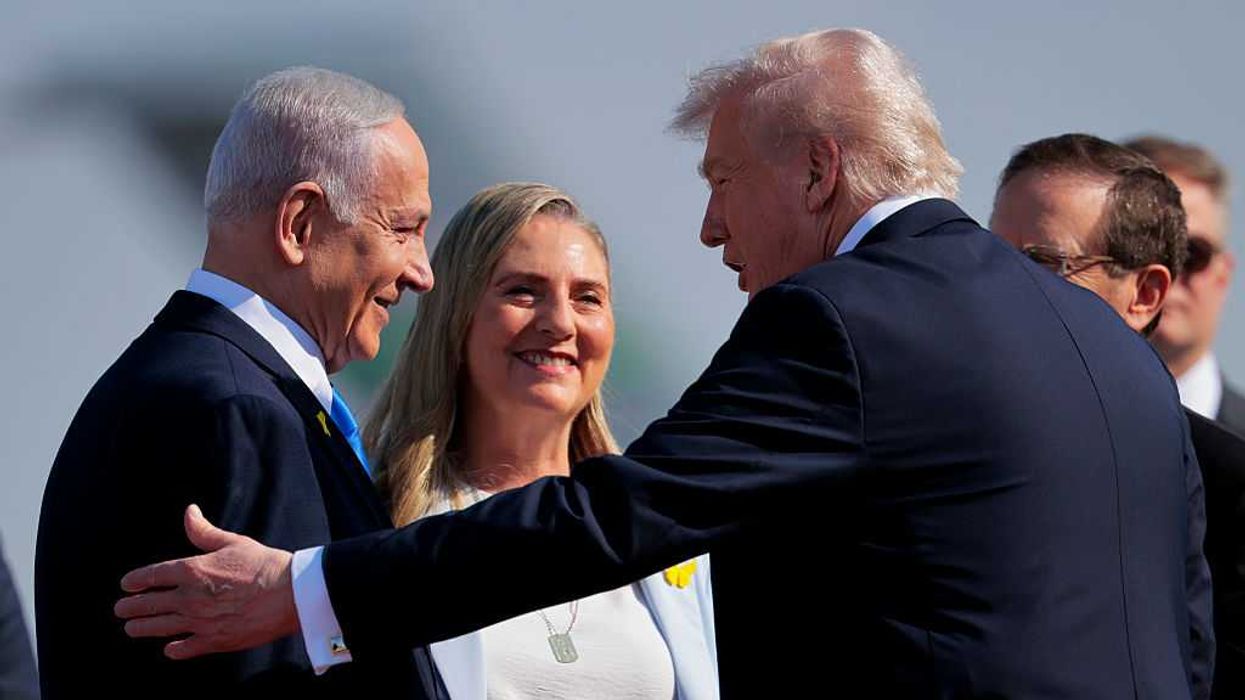Welcome to the latest edition of The Expand Democracy 5 from Rob Richie and Eveline Dowling.
In keeping with The Fulcrum’s mission to share ideas that help to repair our democracy and make it live and work in our everyday lives, we are publishing The Expand Democracy 5 weekly update each Friday.
If you want to suggest a pro-democracy idea for coverage in The Expand Democracy 5, please use the contact form at Expand Democracy.

How the Campaign Finance Board makes public financing work in New York City 🏆
The challenge of money in politics can seem overwhelming. As RepresentUs visualizes, federal campaign spending has tripled in the last 25 years. More than 100 million dollars is regularly spent on the most competitive races, with costs to run for state and local offices surging too. While most voters would back spending limits ( by a whopping 72% to 11% in a Pew poll) such limits aren’t possible legally or in practice.
Among efforts to broaden access to more candidates able to mount a viable campaign, New York City stands out. Once a city election candidate qualifies, the program matches at a rate of eight to one eligible contributions up to $250. That means a contribution of $50 provides the candidate with $450. As reported by the New York City Campaign Finance Board reports, “Over the course of the 2021 election, $126.9 million in public funds was paid to 308 candidates, matching nearly $18.3 million in contributions from New Yorkers.” In tandem with term limits and the liberating effect of ranked choice voting, the result was an infusion of first-time winners, with women increasing from 13 seats to 31 on the city council.
What makes this level of funding possible is the apparently unique structure of the Campaign Finance Board. The CFB is independent, with its spending determined by proof of need rather than political decisions that typically result in public financing programs running out of money. In addition to administering the campaign finance system, the CFB publishes detailed reports on the program and runs its NYC Votes campaign to educate voters through community outreach, a voter guide, and a debate program. Others would benefit from learning to adapt the CFB to their city and state.
Resources:
- Guide to small donor public financing from the Brennan Center
- American Promise’s work on a constitutional amendment to expand options to tackle money in politics

Voting reform and responsive government in Alaska and Oregon 🎬
There are many reasons to seek better elections in the United States. One reason is to have a more responsive government where elected officials put the needs of their constituents first. It can be exceptionally hard to identify which factors contribute to responsive government, but it’s easy to see what makes it worse – such as when power is overly concentrated in legislative or executive leaders who don’t listen to others, when politicians rigidly refuse to compromise, and when leaders are too timid to take on difficult issues when doing so is not immediately popular.
There is no magic fix to achieve better government, but it’s exciting to see what it means when legislators run in elections with rules that create incentives for representing the people. One example is Alaska’s Top Four primary system, used in 2022 and 2024, with ranked choice voting that opens elections to greater choice and ensures winners can build majorities in competitive elections. Another example is the new proportional RCV city council election system used in 2024 in Portland (OR), where candidates with different views and bases of support have reasons to collaborate because they represent the same voters and will consistently run in competitive elections.
Both chambers in Alaska’s legislature are now run by multi-partisan coalitions of Republicans, Democrats, and independents. Portland’s enlarged city council is forging new means of governance and engaging with city voters. We will need years to truly understand the impact of their new rules. Still, Sightline’s Alan Durning and FairVote’s Meredith Sumpter elevate what they’re seeing in Fulcrum in Our Politics Really Can Work – These Stories Show How, where they write: “Voters in Alaska and Portland got more and better candidates in their ranked choice elections. And the winners of those elections, their newly elected leaders, are working together across party lines to get things done for their constituents. Because ranked choice systems reward candidates who can win—and serve—a majority of us, these leaders can focus on governing rather than grandstanding.”
Resources:
- Alaska Memo substack on Alaska politics by Matt Buxton
- Rose City Reform substack on Portland by Maja Viklands Harris, who has this long piece on Portland’s new system in the National Civic Review
- Ranked Choice Voting 101 by the RCV Resource Center
- Academic article on early impact of Top 4 in Alaska by Benjamin Reilly and Glenn Wright published in the Journal of Political Institutions and Political Economy

Ballot access fairness and a Wyoming success story
Having voter choice in elections starts with candidates securing a place on the ballot – a barrier first created in the United States in the late 19th century with the widespread adoption of government-printed and regulated ballots, replacing the practice of voters bringing their own or party-printed ballots to the polls. That change brought more order to elections, but also gave incumbents the power to regulate who appears on the ballot -- a power that too often has been used to maintain what has become a duopoly of two major parties that are deeply entrenched. That power of rules helps explain that dominance even as nearly half of voters are no longer registered with the major parties (see below) and large majorities support the concept of a viable third party.
The essential resource for committed and reasonable ballot access in the United States is Ballot Access News, co-edited by Bill Redpath and Richard Winger. Winger has written helpful overviews about ballot access, including a piece for FairVote on the worst ballot access laws in the United States (as of 2015) and a Fordham Law Review article titled, "How States Can Avoid Overcrowded Ballots but Still Protect Voter Choice” (2021). Under the leadership of Oliver Hall, the Center for Competitive Democracy has served since 2005 as a vital litigation vehicle to hold states accountable for bad laws.
As a recent example of the ongoing struggle for fairness in states, Ballot Access News reports on how a detrimental ballot access bill moving quickly through the Wyoming legislature was stopped by Senate Majority Leader Tara Nethercott. It’s a great example of the power of relationships and political courage. As Rochard Winger concludes, “This incident shows the need for leaders of minor parties to cultivate relationships with state legislators. In the United States, unlike other democracies, there is no consensus that minor parties and independent candidates should be allowed to participate in elections. Minor parties and independent candidates must deal with state legislatures to protect their ability to run.”

D.C. Statehood bill has support from a substantial share of Congress⚡
Many young Americans might assume that having 50 states is baked into the Constitution, as the result is a nicely round number of 100 U.S. Senators. But that, of course, is not true - we have admitted 37 states to the nation since adoption of the U.S. Constitution. This admission process has sometimes been politicized and had politically impactful implications, such as the Dakotas benefiting from having two states and four Senators despite a combined population of less than 1.8 million – smaller than the population of 40 states and less than a twentieth of the population of California that is limited to two Senators.
With some 587,000 people, Wyoming is our smallest state, far smaller than the 702,000 people living in Washington, D.C. or the 3,236,000 people living in Puerto Rico. The case for statehood for D.C. has been powerfully made for decades, given that it is the only national capital in the democratic world without voting representation in its national legislature. With Congress this year showing every indication of wanting to micromanage the D.C. government even as it slashes its budget, D.C. statehood makes even more sense. That emphasizes the importance of advancing legislation to admit Washington, D.C. as a state, with bills introduced this year in the U.S. Senate ( SB 51, introduced by Sen. Chris Van Hollen with 42 cosponsors) and the U.S. House ( HR 51, introduced by Del. Eleanor Holmes Norton with 189 sponsors).
Sen. Van Hollen explained his support: “Every American should have a full vote in our country’s future, but we fall short of this promise every day that the residents of the District of Columbia are denied that right in Congress and subjected to taxation without representation. We must grant the District statehood – the people who live in our nation’s capital deserve the same basic political rights afforded to citizens across the fifty states.”
More resources:- DC Vote is a national citizen engagement and advocacy organization dedicated to strengthening democracy in Washington, D.C.
- Why Statehood for DC, an explainer from the D.C. city government
- Constitution Annotated provides an overview of how states are admitted
 The Adams Morgan area of Washington, DC Doyle Collection
The Adams Morgan area of Washington, DC Doyle Collection

Timely Links
- Hundreds of scholars say U.S. is swiftly heading toward authoritarianism: New from NPR - “A survey of more than 500 political scientists finds that the vast majority think the United States is moving swiftly from liberal democracy toward some form of authoritarianism. In the benchmark survey, known as Bright Line Watch, U.S.-based professors rate the performance of American democracy on a scale from zero (complete dictatorship) to 100 (perfect democracy). After President Trump's election in November, scholars gave American democracy a rating of 67. Several weeks into Trump's second term, that figure plummeted to 55.”
- “ Australia’s embrace of independent political candidates shows there’s no such thing as a safe seat ” (the Conversation): Australia’s May 12th elections are likely to show how ranked choice voting enables independent and minor party candidates to hold major parties accountable in typically safe seats, building on the success of 10 independent winners in 2022, mostly part of the “teal movement” of women candidates running in previously safe districts.
- “ When governors sabotage democracy just because they feel like it ”: Washington Post c olumnist Jim Geraghty criticizes Texas governor Greg Abbott and Michigan governor Gretchen Whitmer for playing partisan games in delaying vacancy elections. Removing discretion in such scheduling makes eminent sense.
- “ America and Its Universities Need a New Social Contract ”: From Harvard professor Danielle Allen in The Atlantic - “The future of the nation’s universities is very much at stake. This is not a challenge that can be met with purely defensive tactics. We must do what should have been done long ago: find our way to a new social contract between universities and the American people.”
- Election law articles at SSRN: Social Science Research Network is devoted to dissemination of new research. Of articles posted in recent months, the most-downloaded papers are Reform for Realists: The False Promise of Condorcet Voting (Michael Parsons and Rachel Hutchinson) and Participation versus Effective Government (RIchard Pildes and Samuel Issacharoff).
- “ In Oakland, Barbara Lee's RCV Strategy Seen as Critical to Mayoral Victory ”: Cara McCormick in Independent Voter News zeroes in on the role of ranked choice voting in Barbara Lee’s win in this month’s special election in Oakland. FairVote provides helpful number crunching.
- Helping America Vote - The Book: The April 24th issue of the invaluable electionline features an overview of election administration in the United States with guest author Wendy Overhill of the National Conference of State Legislatures.
- National Civic Review’s Spring 2025 issue: The National Civic League releases four remarkably indepth issues of the National Civic Review a year, with the latest issue including an account of the first proportional ranked choice voting in Portland (OR), civic assemblies, and deliberation models.
